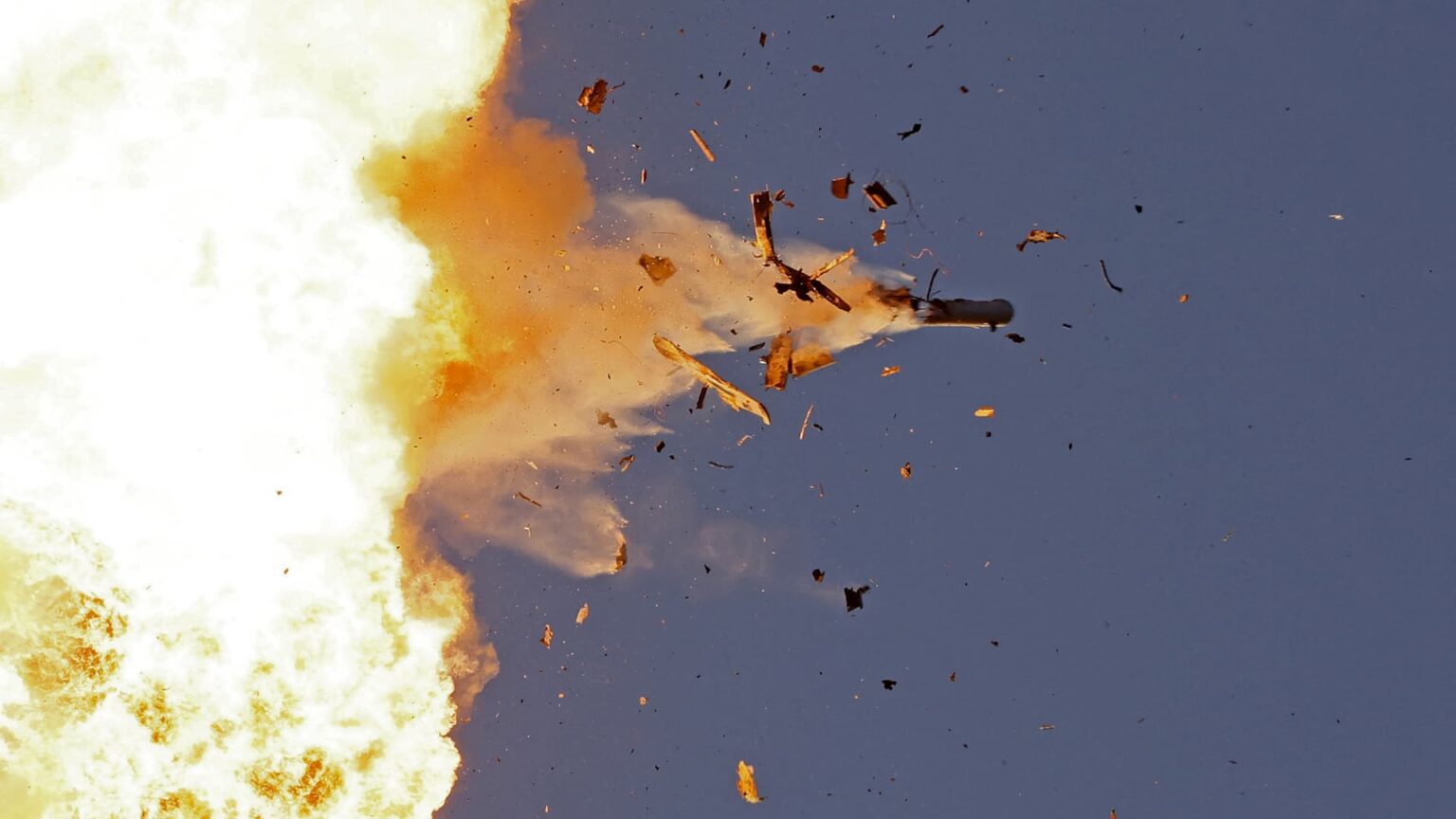This picture taken from a place in northern Israel exhibits a Hezbollah UAV intercepted by Israeli air forces over north Israel on August 25, 2024. The Israeli navy introduced early August 25, 2024 that it was conducting pre-emptive strikes in Lebanon after detecting preparations for “large-scale” assaults by the Iran-backed militant group Hezbollah. Hezbollah mentioned it had launched greater than 320 rockets at Israel in a single day, focusing on a string of navy positions, whilst Israel’s navy mentioned it was finishing up pre-emptive strikes in opposition to the group.
Jalaa Marey | Afp | Getty Pictures
Tensions within the Center East and the chance of a wider battle will hold oil costs elevated, mentioned Vivek Dhar, mining and vitality commodities strategist on the Commonwealth Financial institution of Australia.
Oil costs rose on Monday after Israel’s Air Drive struck targets in Lebanon with over 100 fighter jets earlier than the Iran-backed group fired greater than 320 rockets into Israel.
U.S. West Texas Intermediate crude was up 0.75% at $75.39 a barrel, whereas Brent crude rose 0.67% to $79.55.
Iran-backed Hezbollah mentioned the strikes have been in retaliation to Israel’s killing of senior commander Fuad Shukr in Beirut final month. Israel mentioned its pre-emptive strikes have been aimed toward foiling an even bigger assault by the Hezbollah, Reuters reported.
“Whereas market expectations are centered on Iran’s assault hurting Israel with out triggering a wider regional battle, Israel’s response can be equally vital. And Israel’s response might embrace an assault on Iran’s oil provide and associated infrastructure, which might put in danger 3 – 4% of world oil provide,” Dhar mentioned.
Cedric Chehab, managing director and head of world threat at analysis agency BMI mentioned the change of fireside on Sunday doesn’t imply that an “all-out battle” is imminent.
Talking to CNBC’s “Squawk Field Asia,” Chehab mentioned that “what Hezbollah needed to do, what Iran needed to do, was to primarily enable for deterrence. So, [to] train that deterrence, and so they’ve completed that.”
Whereas there’s a threat that the confrontation spirals out right into a wider battle, there’s nonetheless room for de-escalation, he added.
Each Israel and Iranian leaders “don’t want this to get out of hand and to escalate … do not forget, Iran has a brand new president who’s untested, and the concept is to use stress on Israel, however not essentially interact in direct confrontation.”
Whereas Dhar agreed with Chehab’s view that the occasions on Sunday are unlikely to be the catalyst for an all-out battle within the area, he identified Iran has but to retaliate in opposition to Israel following the assassination of Ismail Haniyeh, the political chief of Hamas, in Tehran final month.
Dhar additionally mentioned the progress of Gaza truce talks can be an indicator of how Iran, Hezbollah, and Hamas interpret the occasions over the weekend.
Early Monday, Reuters reported that there was no settlement over ceasefire in talks on Sunday concerning the Gaza battle, with Egyptian safety sources telling the company that neither Hamas nor Israel agreed to proposals offered by mediators in Cairo.
Dhar added whereas the escalation hurts truce talks at face worth, the truth that Israel managed to thwart Hezbollah “might pressure Iran and its proxies to concede that Israel is ready of energy, notably with U.S. backing, making the truce talks extra palatable.”
He additionally forecasts that Brent futures will commerce between $75 and $85 a barrel in September, with extra potential upside if hopes for a truce in Gaza diminish, and as an Iranian reprisal in opposition to Israel remains to be “on the playing cards.”
“Extra broadly, the chance of a wider battle within the Center East that completely embroils Iran is an upside threat to our outlook.”


